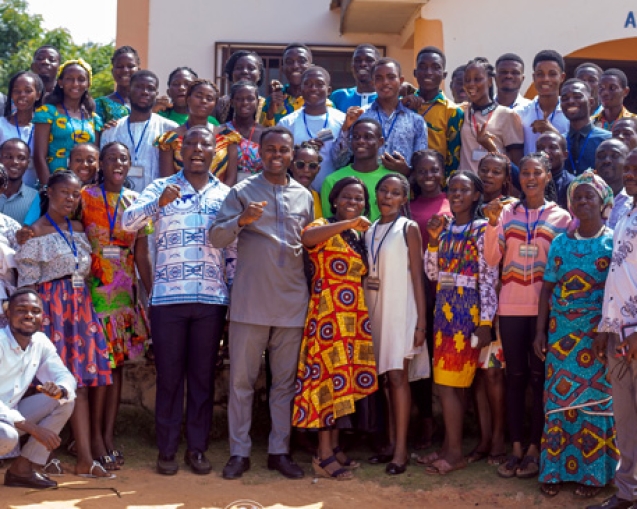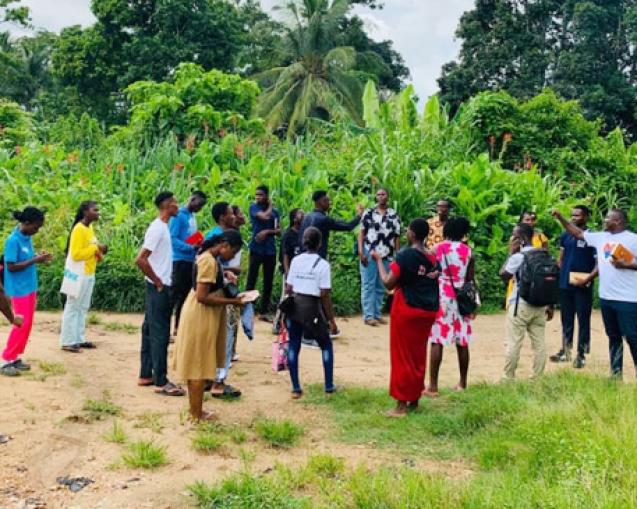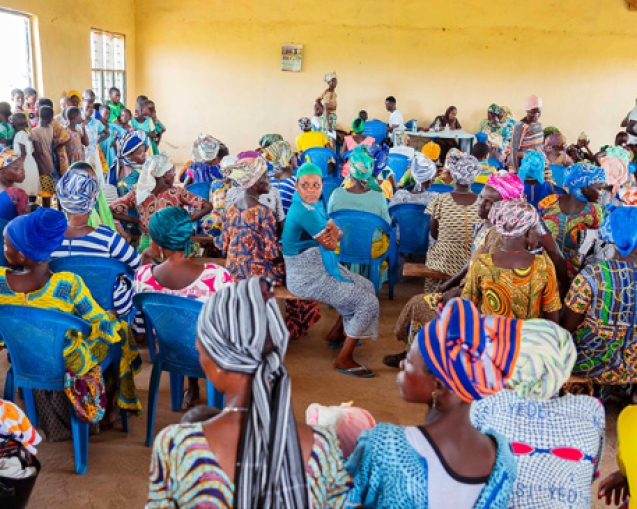Soul-winning, or sharing the message of salvation with others, is a fundamental aspect of the Christian faith. It involves actively seeking opportunities to spread the love of Christ and invite others into a relationship with Him. Before Christ’s departure from earth, He commanded His disciples to carry the good news across boundaries, which has come to be known as the Great Commission (Matthew 28:16-20). However, the Great Commission seems to be the “Great omission” in the lives of some believers. Many struggle to make soul-winning a priority, and several reasons contribute to its neglect.
According to Ravi Zacharias, an Indian-born Canadian-American Christian evangelical minister and apologist, the work of soul-winning is not only the responsibility of pastors and evangelists but also every believer who has experienced the transformative power of the Gospel. Unfortunately, some believers have not fully understood the concept of soul-winning or its importance in the Christian faith. They may not recognize the significance of sharing the gospel with others and leading them to salvation.
Some people today lead busy lives and may not prioritize or make time for soul-winning activities. They may be consumed with personal or professional commitments, leaving little time for evangelism. This is not to say one should abandon their profession to engage in evangelism. Instead, the consciousness to even use one’s profession to make Christ known to colleagues and staff is missing among many people.
Some individuals may be hesitant to engage in soul-winning activities due to fear of rejection or negative responses from others. They may worry about how they will be perceived or judged by others. We live in a generation where people perceive preachers of the good news as not having anything meaningful to do.
Also, some may feel unprepared or ill-equipped to engage in soul-winning activities and may lack the necessary training, resources, or skills to effectively share the gospel. Others may have become spiritually complacent or apathetic towards evangelism, losing their zeal and passion for reaching out to others or being content with their personal salvation without actively seeking to bring others to Christ.
While soul-winning is an important aspect of the Christian faith, individuals and churches may prioritize other activities such as worship, fellowship, or discipleship. While these are all essential elements, soul-winning may be overlooked or relegated to a lower priority. Societal and cultural changes may have influenced the way people view and engage in evangelism. The secularization of society or shifting cultural norms may have diminished the emphasis on sharing one’s faith with others.
UNDERSTANDING THE GREAT COMMISSION
A.W. Tozer, an American Evangelist, once said that “soul-winning is not just a technique or method; it is a lifestyle fueled by genuine love for God and others.” This implies that one needs to make soul-winning a priority, essentially grasping the significance of the Great Commission. Jesus’ final instructions to His disciples in Matthew 28:19-20 urged them to go and make disciples of all nations. Recognize that this commandment applies to all believers, providing a clear mandate to reach out to others with the saving message of Jesus Christ.
The Great Commission refers to Jesus Christ’s command to His followers to go into all the world and make disciples of all nations, baptizing them in the name of the Father, Son, and Holy Spirit, and teaching them to observe all that He had commanded (Matthew 28:18-20). Understanding the Great Commission involves recognizing its overarching goals and the steps to achieve them. This calls upon believers to actively engage with people from all nations and cultures, spreading the message of the gospel and making disciples.
It recognizes that God’s love and salvation are meant for all people, transcending geographical and cultural boundaries. Making disciples is at the heart of the Great Commission. Beyond simply converting individuals, it emphasizes the importance of nurturing and guiding new believers towards a deeper relationship with Christ. It involves teaching and mentoring, helping them grow in their faith, and equipping them to become disciples who make more disciples.
The Great Commission emphasizes the importance of teaching and obeying all that Jesus commanded. It involves helping new believers understand the teachings of Jesus, guiding them in applying those teachings to their daily lives, and living in obedience to God’s Word. This entails not only knowing the Scriptures but also living out the teachings of Jesus and reflecting His character in all aspects of life.
The Great Commission is not limited to the time when Jesus first spoke these words. It is an ongoing mission that continues today. As followers of Christ, we are called to actively engage in making disciples, baptizing, and teaching others to observe all that Jesus commanded. This highlights the long-lasting impact and call for commitment to the Great Commission throughout the ages.
THE CALL TO CULTIVATE A HEART FOR THE LOST
John Piper, an American theologian, has said that “the primary call of Christians is to bring others to Jesus, to fill up heaven and empty hell, not just through proclamation but through the demonstration of Christ’s love in action. Developing a heart for lost souls is the first step towards being effective in soul-winning. Pray that God would ignite within you a deep concern for those who have not yet experienced the joy of salvation. This compassion will motivate you to actively share the Gospel and engage in intentional relationships with those who need to hear the message of hope. Cultivating a heart for the lost is a core aspect of living out our faith and fulfilling the Great Commission.
Developing a heart for the lost starts with recognizing and deeply understanding God’s heart for them. Soul-winning is the heartbeat of God right from the beginning of creation. The Bible repeatedly emphasizes God’s love and desire to reconcile all people to Himself (John 3:16, 2 Peter 3:9). As we align our hearts with His, we begin to see the lost through His eyes and feel what He feels.
Compassion is a key element in cultivating a heart for the lost. Jesus himself was moved with compassion when he saw the crowds, “because they were harassed and helpless, like sheep without a shepherd” (Matthew 9:36). Compassion allows us to feel empathy for the lost and motivates us to take action to help them. Regularly praying for the lost is another important way to cultivate a heart for them. When we bring the lost before God in prayer, we are acknowledging our dependence on Him to work in their lives and open their hearts to the Gospel. Prayer also aligns our desires with God’s, softening our hearts and increasing our burden for the lost.
Cultivating a heart for the lost often requires stepping out of our comfort zone and engaging with people different from ourselves. This may involve intentionally building relationships with unbelievers, volunteering in community outreach programs, or participating in missions work organized by your immediate local church. By actively engaging with the lost, we begin to see them as individuals with unique stories and needs, which deepens our compassion for them.
EQUIPPING YOURSELF FOR THE TASK
Some people have the desire to engage in soul-winning but often question how to go about it. To effectively share the Gospel, it is crucial to equip yourself with a solid understanding of the key biblical principles of salvation. Equip yourself with the Word of God, deepening your knowledge and equipping you to answer questions and doubts raised by those you engage with.
By arming yourself with biblical knowledge, you will gain confidence and be more effective in evangelizing. Always remember, the Bible is our primary source of knowledge and guidance. Regularly reading and studying Scripture deepen our understanding of God’s character, His plan of salvation, and His heart for the lost. The more we know about God and His Word, the better equipped we are to share the Gospel effectively and answer arising questions.
To effectively reach the lost, it’s crucial to have a basic understanding of different worldviews and cultures. This helps us communicate the Gospel in a relevant and relatable way, respecting diverse perspectives and addressing specific concerns or barriers that may hinder acceptance of Christ. Equipping ourselves with knowledge also involves staying informed about current issues and trends influencing the lost.
Understanding societal, technological, and cultural changes helps us connect with people on a deeper level and present the Gospel tailored to their circumstances and challenges.
CONCLUSION
Making soul-winning a priority is a transformative decision that aligns our hearts with God’s heartbeat. Have you considered the number of people who die daily without accepting Christ as Lord and Savior? The alarming rate is motivation enough for us to prioritize soul-winning. Seize every opportunity to communicate the good news, whether in marketplaces, offices, schools, buses, hospitals, prisons, stadiums, and more. Remember, leading someone into an eternal relationship with Jesus brings great joy to heaven. May the good Lord continue to be gracious and strengthen you for His work.
Written by Pastor Prince Augustine Ababio (Jema Nkwanta District – Kintampo Area)


















